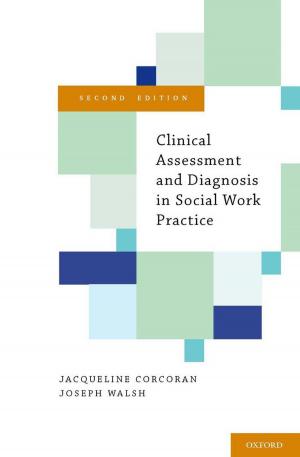China and Cybersecurity
Espionage, Strategy, and Politics in the Digital Domain
Business & Finance, Economics, International Economics, Nonfiction, Computers, Internet, Security, Social & Cultural Studies, Political Science, International, International Security| Author: | ISBN: | 9780190201296 | |
| Publisher: | Oxford University Press | Publication: | March 2, 2015 |
| Imprint: | Oxford University Press | Language: | English |
| Author: | |
| ISBN: | 9780190201296 |
| Publisher: | Oxford University Press |
| Publication: | March 2, 2015 |
| Imprint: | Oxford University Press |
| Language: | English |
China's emergence as a great power in the twenty-first century is strongly enabled by cyberspace. Leveraged information technology integrates Chinese firms into the global economy, modernizes infrastructure, and increases internet penetration which helps boost export-led growth. China's pursuit of "informatization" reconstructs industrial sectors and solidifies the transformation of the Chinese People's Liberation Army into a formidable regional power. Even as the government censors content online, China has one of the fastest growing internet populations and most of the technology is created and used by civilians. Western political discourse on cybersecurity is dominated by news of Chinese military development of cyberwarfare capabilities and cyber exploitation against foreign governments, corporations, and non-governmental organizations. Western accounts, however, tell only one side of the story. Chinese leaders are also concerned with cyber insecurity, and Chinese authors frequently note that China is also a victim of foreign cyber -- attacks -- predominantly from the United States. China and Cybersecurity: Espionage, Strategy, and Politics in the Digital Domain is a comprehensive analysis of China's cyberspace threats and policies. The contributors -- Chinese specialists in cyber dynamics, experts on China, and experts on the use of information technology between China and the West -- address cyberspace threats and policies, emphasizing the vantage points of China and the U.S. on cyber exploitation and the possibilities for more positive coordination with the West. The volume's multi-disciplinary, cross-cultural approach does not pretend to offer wholesale resolutions. Contributors take different stances on how problems may be analyzed and reduced, and aim to inform the international audience of how China's political, economic, and security systems shape cyber activities. The compilation provides empirical and evaluative depth on the deepening dependence on shared global information infrastructure and the growing willingness to exploit it for political or economic gain.
China's emergence as a great power in the twenty-first century is strongly enabled by cyberspace. Leveraged information technology integrates Chinese firms into the global economy, modernizes infrastructure, and increases internet penetration which helps boost export-led growth. China's pursuit of "informatization" reconstructs industrial sectors and solidifies the transformation of the Chinese People's Liberation Army into a formidable regional power. Even as the government censors content online, China has one of the fastest growing internet populations and most of the technology is created and used by civilians. Western political discourse on cybersecurity is dominated by news of Chinese military development of cyberwarfare capabilities and cyber exploitation against foreign governments, corporations, and non-governmental organizations. Western accounts, however, tell only one side of the story. Chinese leaders are also concerned with cyber insecurity, and Chinese authors frequently note that China is also a victim of foreign cyber -- attacks -- predominantly from the United States. China and Cybersecurity: Espionage, Strategy, and Politics in the Digital Domain is a comprehensive analysis of China's cyberspace threats and policies. The contributors -- Chinese specialists in cyber dynamics, experts on China, and experts on the use of information technology between China and the West -- address cyberspace threats and policies, emphasizing the vantage points of China and the U.S. on cyber exploitation and the possibilities for more positive coordination with the West. The volume's multi-disciplinary, cross-cultural approach does not pretend to offer wholesale resolutions. Contributors take different stances on how problems may be analyzed and reduced, and aim to inform the international audience of how China's political, economic, and security systems shape cyber activities. The compilation provides empirical and evaluative depth on the deepening dependence on shared global information infrastructure and the growing willingness to exploit it for political or economic gain.















